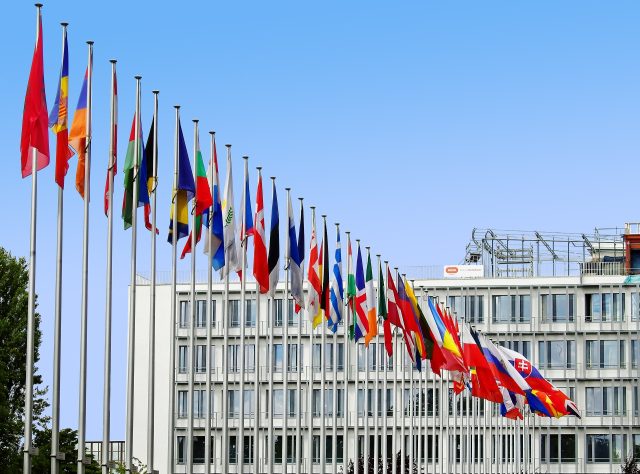
The Possibility of Accession to the European Community by the Balkan Countries was Discussed in Rome, Taking into Consideration All the Critical Issues
European Commissioner for Neighbourhood and Enlargement Olivier Varhelyi, the rotating President of the Council of the European Union Tobias Billstrom and the foreign ministers of Bosnia and Herzegovina, Kosovo, Albania and North Macedonia met in Rome at the ministerial on the Balkans to analyse the critical issues relating to probable membership of the European Community.
With the conflict between Russia and Ukraine, some of the Balkan countries are asking for an acceleration of the process of joining the European Community and analysts believe the current period of geo-political instability is favourable, in the progress towards rapprochement to Europe, by some requesting countries. Many Balkan nations are about to join a group defined as “Euro-Atlantic” because they are very close in intent to the Atlantic alliance or are already part of it and are in the process of being integrated into the European Union, even after having followed all the procedures envisaged for the access method.
One of the main issues discussed is that relating to illegal immigration which sees an intertwining, to be kept under control, between the routes of Syrian migrants and the Balkan ones, which have always been very busy. Turkey will play a fundamental role in managing the migratory flow, as it represents a sort of border for a large part of the populations fleeing from South-East Asia who cross paths with the Syrian people intent on abandoning the areas still afflicted by the war. Illegal immigration will have to be controlled and managed in the best possible way by the evolving Balkan countries intending to enter the European Community because it will be complex to manage the migratory flow driven by the promise of progress represented by eventual entry into the European Community and, therefore, in a more westernized context.
To date, Italy is among the nations most interested in the development of the issue because it will be essential to evaluate a significant increase in investments in the Balkan areas in view of new industrial, financial and cultural collaborations. All of Europe looks with interest at the future integration of the Balkan nations, especially for issues related to territorial security and the desire for greater economic collaboration. Every European government, like the Italian one, will have to do everything possible to facilitate the accession of the Balkan countries to the European Community and to the Atlantic Alliance for a series of reasons that have never been so relevant as in this particular historical period, in which the substantial differences between West and East are causing global instability.
In this process of integration of the Balkans into the European Community, there are critical issues that must be tackled with extreme effectiveness and carefully evaluated. Among the most delicate dynamics in the matter, there is that relating to Bosnia, which has not yet achieved good internal political stability due to the ethnic conflicts that still rage in the territory and which will not allow an easy approach to the European Community but which, hopefully, they can also be resolved, possibly, with external diplomatic interventions. Another great unknown factor is that linked to the still unresolved conflict between Kosovo and Serbia with the independence goals of the Kosovars creating serious instability in the country. In this regard, however, it must be said that lately there have been steps forward by the diplomatic corps of the two nations which bode well for a more peaceful future.
In the whole age-old question of bringing the Balkan countries closer to the European Community, Italy represents a very important pawn, above all in the role of mediator between the ethnic groups in conflict within the nations in question. It will be essential to demonstrate respect for the traditions and reasons of each faction involved in the disputes and to help in the peaceful evolution of the issues.
Alessandro Fiorentino



 Subscribe
Subscribe